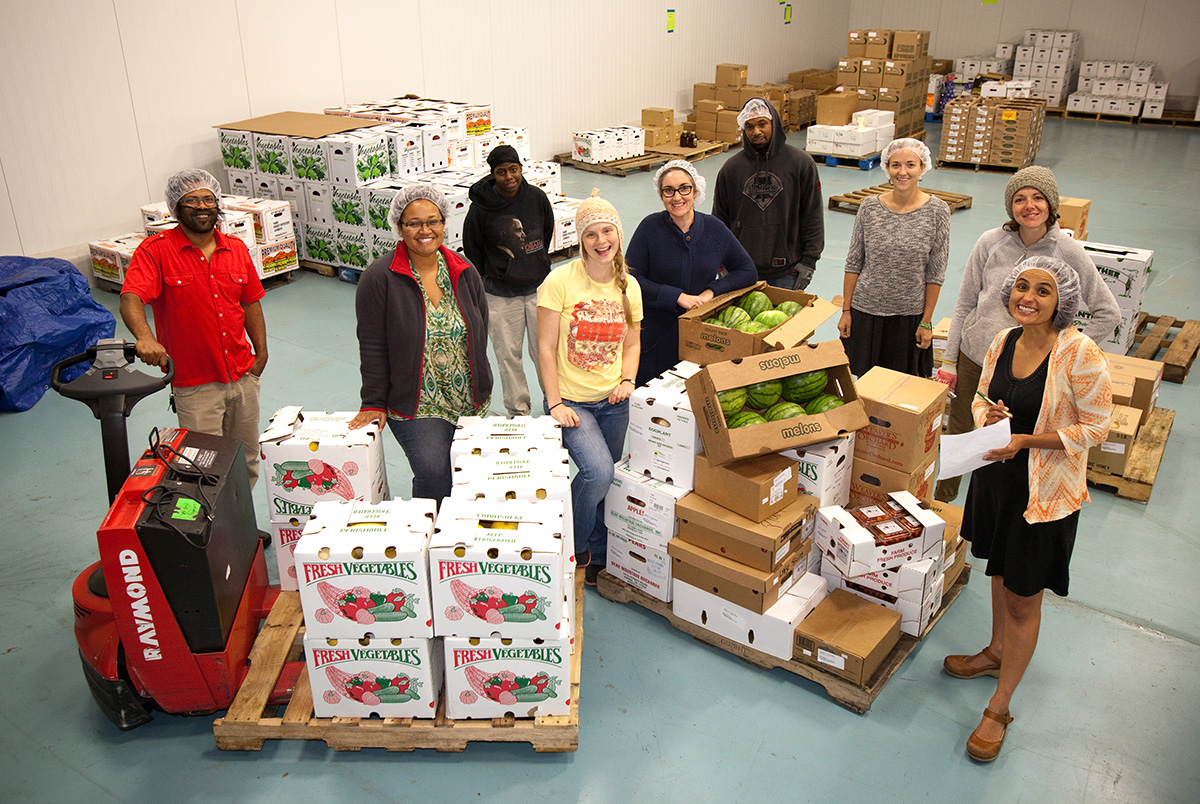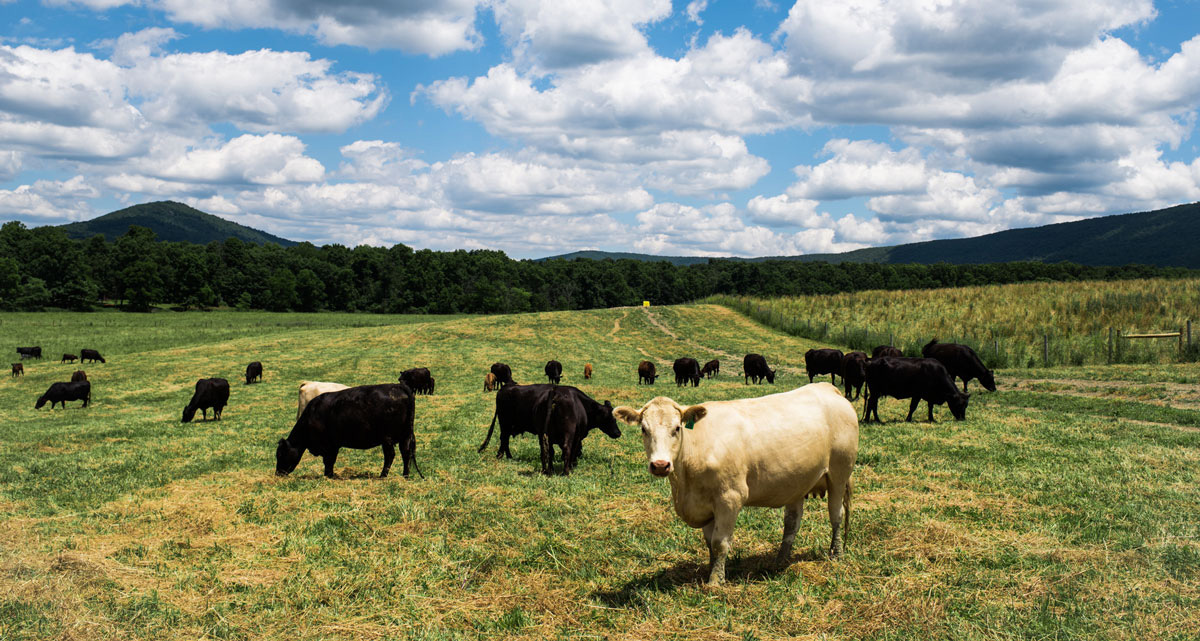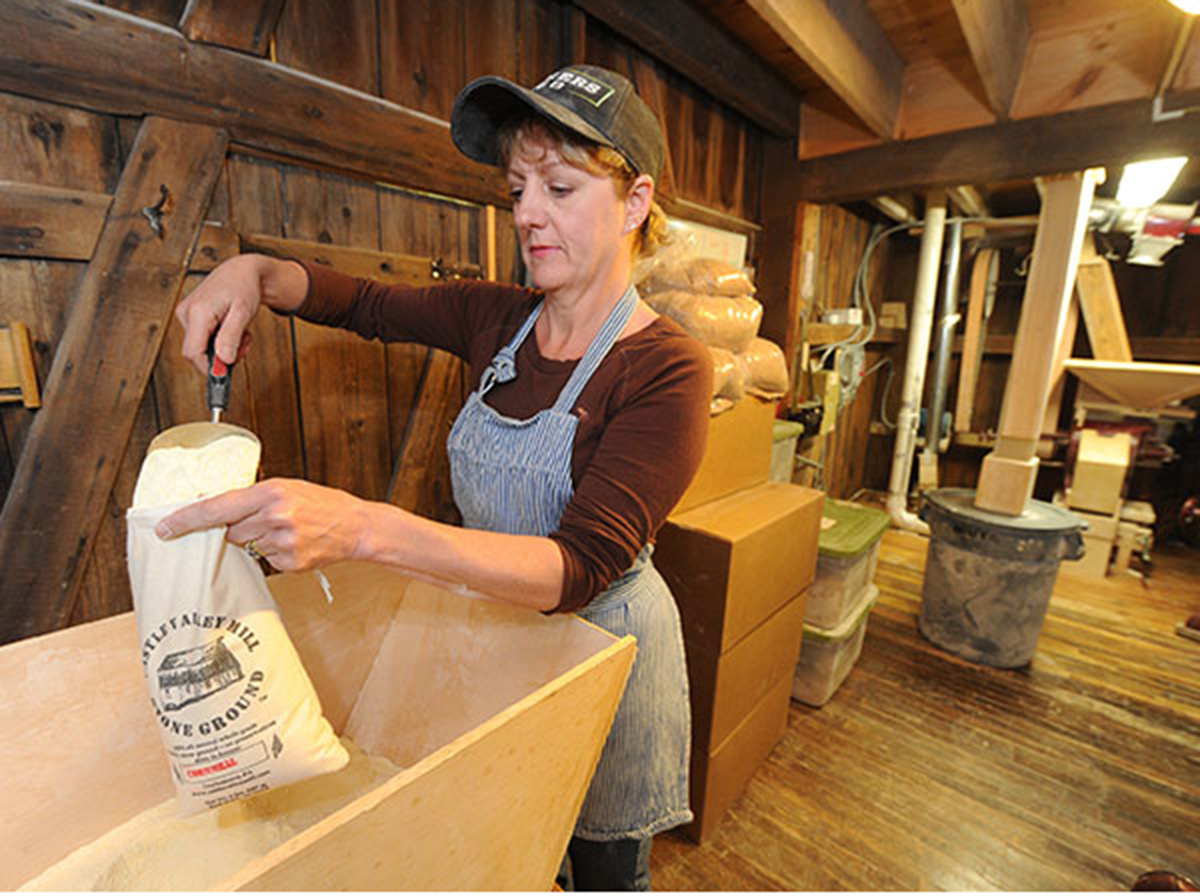The Common Market in Pennsylvania: Breaking Through the Food Hub Hubbub
I remember the first time I heard the phrase “food hub.”
I was a first-year student at Carleton College, just beginning to delve into the complexities of food systems development. I’d learned that buying locally grown food at an institutional level is not as simple as farmers dropping off produce. Large-scale sourcing requires extra organization and processes such as cleaning, cutting, transporting, storing, and so much more. But just as I thought my idyllic locally sourced food bubble had burst, my mentor introduced me to what seemed like a magical supply-chain solution: the food hub.
Food hubs aggregate and distribute local foods from a large network of small farms, most often farms that adhere to responsible and ecological agricultural practices. This aggregation makes it possible for smaller farms to join together to meet the high-volume demands of a city or institution. Compared with complicated national or international supply chains, food hubs offer only one middleman to collect, clean, and distribute foods, so more profit can go into farmers’ pockets. At the same time, by creating a socially conscious economy of scale, the retail price of local foods can drop, making them more affordable. Food hubs can also simplify the ordering process for large buyers while maintaining food safety for consumers. So instead of coordinating with dozens of producers, a company like Bon Appétit can order local produce, eggs, meats, and more all through one vendor with one order, one delivery, and one bill.
Being the supply-chain geek that I am, I was instantly drawn in. And I was not alone: Food hubs’ ability to aggregate regional, responsible food has drawn the attention of many food policymakers and social entrepreneurs. And much like my education in the messy realities of local sourcing, my understanding of food hubs has become more nuanced over time.
While the idea seems simple on its face, the reality of starting a food hub is anything but. Successful food hubs require incredible organization, business acumen, patience, and capital. No single model has proven most effective or sustainable.
There is one, however, that’s working well in the Mid-Atlantic region around Philadelphia, with plans to expand. The Common Market is a nonprofit food hub that aggregates local food from over 80 farms. I was excited to connect with Common Market Outreach Coordinator Margaret Smith while organizing a local producer panel for Penn Food Week at the University of Pennsylvania. To find out the secret to The Common Market’s success, I toured their distribution warehouse.

The Common Market staff, including cofounders Haile Johnston and Tatiana Garcia
Granados, in their Philadelphia warehouse
Common ground
The Common Market began with the simple notion that “everyone deserves to eat good food and the people who grew that food deserve to be paid fairly.” Its cofounders — husband and wife duo Haile Johnston and Tatiana Garcia Granados — were running a community-based nonprofit in Philadelphia’s Strawberry Mansion neighborhood when they realized there wasn’t adequate infrastructure to bring food from small, sustainable farms into the city and urban institutions. So they went directly to rural counties to buy local foods at auction, and they were amazed at the discrepancy between the price farmers received and the cost of retail produce. The pair saw an opportunity to create a more direct connection between farmers and consumers: a new, shorter supply chain that simultaneously paid farmers fairly and improved urban food access and public health.
They founded The Common Market in 2008 with one truck, selling $100,000 of local food in their first year.Today, the company has a fleet of trucks and sells more than $5 million of local food annually, with hopes to grow via an ambitious national expansion plan. A second hub, The Common Market Georgia, recently opened.
I learned that The Common Market did face a challenge in lasting through the early slow-growth phase that plagues most food hubs. It was able to survive in part due to its nonprofit model and the support of grants and donations. But The Common Market has always run like a business, with the goal of being self-sustaining. (Both cofounders are Wharton Business School grads.) Today, their operations are significantly more self-sufficient; much of the philanthropic support they receive goes to fund their ambitious national expansion program and address issues of food access.
Institutional knowledge
The Common Market’s central goal is one of food access, connecting low-income communities with healthy, local foods. And they found that the most effective way to reach these communities is to sell local foods to institutions: the schools, hospitals, and cafeterias where people eat. They see large geographically rooted nonprofits, like hospitals and universities, as strategic markets for local goods and services.
Bon Appétit chefs at Johns Hopkins University, Gallaudet University, Emory University, the Savannah College of Art and Design, and the University of Pennsylvania now work with The Common Market to source Farm to Fork produce, eggs, dairy, meats, and even seafood. The Common Market helps enroll vendors into Bon Appétit’s Farm to Fork program, simplifies ordering, and maintains food safety standards for our chefs. In fact, as of this summer, all their produce farmers are certified as following Good Agricultural Practices (GAP) and they themselves have a Safe Quality Food Level 2 certification.
Hearing all this stoked the passions that motivated me to organize with the Real Food Challenge as a student, and eventually to work for Bon Appétit as a Fellow. It was another powerful example that food service companies can play a critical role in sustainable development. Bon Appétit’s commitment to local sourcing not only supports individual farmers, but by supporting organizations like The Common Market, it can help to grow entire new systems and supply chains.

